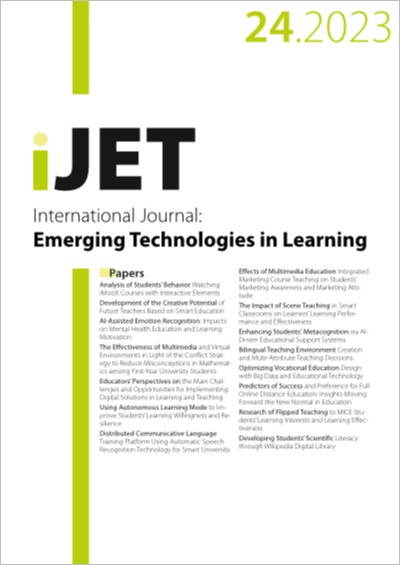The Effectiveness of Multimedia and Virtual Environments in Light of the Conflict Strategy to Reduce Misconceptions in Mathematics among First-Year University Students
DOI:
https://doi.org/10.3991/ijet.v18i24.42937Keywords:
Cognitive conflict strategies, e-service learning, mathematics problem-solving ability, misconceptions, types of error·Abstract
The roots of misconceptions in mathematics among first-year students at Hashemite University can be traced back to a flaw in the foundation of their previous mathematics knowledge acquired over the course of their academic years. This flaw presents a significant challenge for them during their studies. This study aimed to determine the effectiveness of multimedia and virtual environments in reducing misconceptions in mathematics among first-year students at Hashemite University, based on the conflict strategy. The study sample consisted of a random cluster sample of 109 male and female students from Hashemite University. The researcher observed the students and recorded their test scores. The researcher conducted face-to-face interviews to collect data for the study and performed statistical analysis using the t-test. The results showed that the percentage of misconceptions in mathematics among firstyear students at the Hashemite University for types 1, 2, 3, 4, and 5, respectively, amounted to 23%, 8%, 13.8%, 14.7%, and 0%. And 13.8%. The study examined the effectiveness of multimedia and virtual environments in reducing misconceptions in mathematics among first-year students at Hashemite University, based on the conflict strategy.
Downloads
Published
How to Cite
Issue
Section
License
Copyright (c) 2023 khaled ahmed aqeel alzubi

This work is licensed under a Creative Commons Attribution 4.0 International License.



